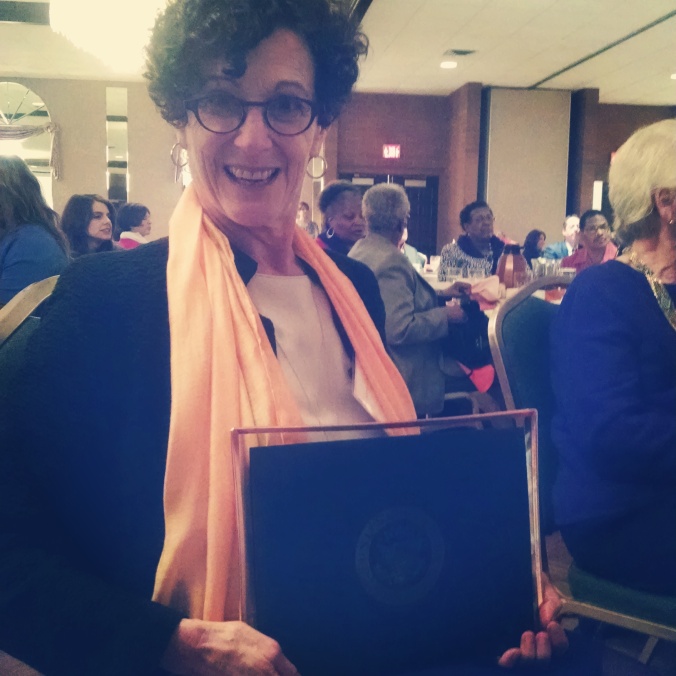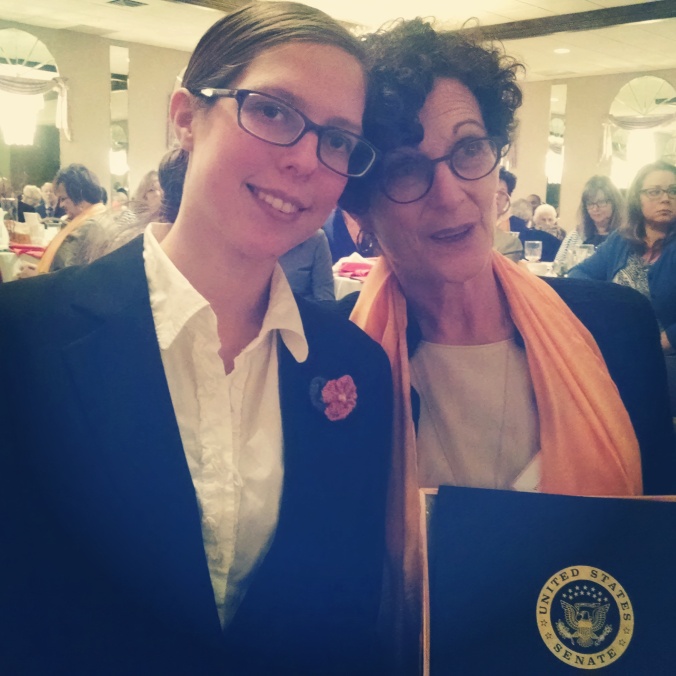“…my heart has just been called back to the time when we used to sit with our arms around each other at the sunset hour & talk & talk of our friends & our homes & of ten thousand subjects of mutual interest till both our hearts felt warmer & lighter for the pure communication of spirit.”
(ABB to LS, 1848)
Anne Shirley longed for a kindred spirit. Leslie Knope inaugurated Galentine’s Day. Loving female friendships have been a defining part of womanhood for centuries, opening space for strangers to become sisters. This was especially true during the 1800s, which set the doctrine of “separate spheres” on a collision course with women’s education.
Often, ambitious female students were sent to female-only colleges and seminary schools, where there could be no risk of any indiscreet behavior. Even at Oberlin College, my alma-mater and a leader in co-education, social interactions between men and women were met with trepidation. For fear of being labelled a den of debauchery, Oberlin made very sure to keep its female students under a strict behavioral regimen. No matter where you went to school, this was the rule: no boys allowed (until marriage).
While most heterosocial interactions were discouraged, there was no limit, no curfew, on sharing time with other women. In this environment, female friendships flourished. Although homosexual acts were illegal, our modern fear-mongering over same-sex relationships wouldn’t reach a fevered pitch until decades later. Women’s sexuality, especially, was so poorly understood as to be thought nonexistent. So there was no harm in walking together…dancing together… sleeping together…
It is in this era that Antoinette Brown met Lucy Stone in Oberlin, and where Lucy discovered, as “dear Nette” would later write, “the key to my soul.”


Both women were ambitious, dreaming of a potential beyond their assigned gender roles. Lucy had plans to speak publicly for the abolition of slavery and the rights of women, and Antoinette wanted to become a minister. At a time when women were not permitted to speak in churches and the few who found an open podium were pelted with stones and insults, they imagined (and achieved) the impossible.
From their hometowns in Massachusetts and New York, Oberlin must have seemed a shining oasis of unrestricted knowledge, having conferred the first official bachelor’s degrees to women in the United States in 1841. What they would find upon their arrival, however, was not quite all they had hoped.
Lucy Stone arrived first, a brash, stubborn Garrisonian, who (at best) could be described as conflicted about religion. She was short on funds, stretched thin, and resented being policed by the ostensibly omniscient Ladies’ Board. There would be no speaking in public for her, no debating the young men in her classes. Although Oberlin was against slavery, Lucy was chastised and patronized for her more radical beliefs. These were not the happiest of days.

Meanwhile, en route to Oberlin, Antoinette Brown took a stage coach from Elyria. During the journey, a man, who also happened to be a trustee of the College, bestowed some advice upon the young lady: stay away from Lucy Stone. She was bright, he allowed, but “eccentric…and far too talkative on the subject of woman’s rights.” As Antoinette would later remember it, “I resolved then and there to know more of Lucy Stone.”
The close, intimate relationship that blossomed offered the two women the necessary security to explore their sense of self, validate their ambitions, and push through hardship. Together, they convinced a professor to let them debate each other in class. When that experiment ended with the Ladies’ Board’s extreme disapproval, they founded a women’s debate club in secret, in the woods. When Lucy graduated and began her oratory career, Antoinette urged her to “speak as though you had a right to.” And, although Lucy felt very strongly that Oberlin and religion would crush Antoinette’s spirit, she knew her dear friend would succeed, despite being willfully overlooked and discouraged by many male theology professors.
Their relationship continued and evolved for decades. First, as sworn spinsters. Later, as sisters-in-law and mothers. As their writing styles matured, they continued to reminisce happily of the times when “you waded through mud and rain, after 9 o’clock P.M. for the sake of sleeping with me.”
Although they were never lovers in a sexual sense, their letters are rich with passion. In an era of dating apps and hook-ups, I think it’s easy to discount the importance of our friendships. Lucy Stone and Antoinette Brown sure loved each other – and they weren’t shy about saying it! So, in the spirit of Galentines Day and in honor of this beautiful homosocial relationship, I present some examples of true sisterly love:
“Dearest Lucy, It is a beautiful morning warm & pleasant as Spring & about as muddy in the roads…When I was passing along the board walk on Pleasant street, I thought of our evening strolls together & your favorite quotation ‘how shall two walk together except they be agreed’ sounds so naturally in my heart that I half looked around expecting you were beside me. Thoughts of you steal over me every time I walk that way particularly if it is evening & at no time is your memory brighter sweeter & dearer to me than then. O how glad I should be to have your arm around me & my arm around you & to walk with you again on that narrow plank even at the risk of slipping off into the mud.”
(ABB to LS, 1849)
“There is not room to write how much I love you but it is a great deal. Write Lucy very soon–a long long long letter–tell me everything and let us be sisters forever wont we. How I do wish I could hear from you to night.”
(ABB to LS, 1850)
“Dearest Lucy, it is a fine pleasant afternoon just such as one as makes me think of you. Dear Lucy if you were here now in this pleasant little room in the old boarding hall why then–I dont know what would happen; but I believe I should sit down and cry for joy. Yes here we are in the same room that I occupied at the time I came from home with the artificials in my bonnet, and you came in and cried over me for sorrow. Dear dear L. I love you better for those tears than I should have done without them, and I have no artificials in my bonnet now; but am just as much determined as ever to think them pretty… I said ‘we are in the same room,’ but poor room! It has almost lost its identity, through the abundance of paint, white wash, and paper till not a particle of its former brown countenance can be discovered.”
(ABB to LS, 1850)
Here’s to female friendships!

*Selected correspondence from Friends and Sisters: Letters between Lucy Stone and Antoinette Brown Blackwell, 1846-93 by Carol Lasser and Marlene Merrill (University of Illinois Press, 1987)
**LS was not known as a prolific penpal, and on at least one occasion requested her letters be destroyed, then later many of those she did keep burned in a fire… hence, the major quotations from ABB only

